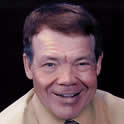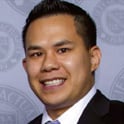By Rich Junker and Paul Ramirez


Rich Junker Paul Ramirez
I live 20 miles from the Gulf of Mexico. When actuarial exams were my life, I lived two miles from Long Island Sound. Yet over the course of a year, I found my way to the water only occasionally. Even with the burden of actuarial studies dispatched, it did not improve much. New ambitions filled those endless hours, year over year.
Yet I do profess among my core values a love of nature and the outdoors. As a teen, I dreamed of a livelihood patrolling the green, green grass of centerfield. Yet today, even on a Saturday morning, I’m magnetically drawn not to the beach but to my familiar friend—the office, home of all my beloved electronic toys and homely comforts.
Does this sound like you? Psychologists call this phenomenon incongruity—how you live your life does not match what you say you value.
Since my days as an actuarial abbot of daily scholarly devotions, I have made halting progress toward rectifying the incongruity of my profession, of priority and my reality of priority. A milestone was at age 55: a friend observed that he now had only 1000 more Saturday mornings remaining, of his total allotment of three score and maybe 15 years, to strut on this theater, this earth. He vowed henceforth never to work a Saturday. My record since has not been perfect on this count, but nowadays most of my Saturdays are mine.
I honor Saturday mornings in my own favorite way: breakfast with friends, complemented by breakfast with my favorite companion in life—myself. My ideal is to assemble an array of breakfast delights, a couple newspapers and magazines, a few books, and drive off to a picnic table under a covering shelter overlooking a lake. And hatch dreams, yak with friends, read away, write, as a soothing breeze rolls across my back. (Yes, the kids are grown and gone. Lucky me. Boo!)
Many of you will say, “This is fine for many folk, nine-to fivers, ham-and-eggers, Type Bs, semi-retireds--they don’t do yearends, they don’t do conversions, they don’t install valuation systems …”
We who solve technology problems that would cross a rabbi’s eyes need the restorative power of nature more than anyone. Consider: our value as actuaries lies not in our stamina for production, but in our CREATIVITY. Grinding away with our favorite tool of iron-headed persistency to solve problems must be complemented by bursts of insight, switching from the analytical hemisphere to the intuitive hemisphere, to release revelations. This is where nature comes to the rescue.
What would our lives be like if we were as immersed in nature as we are in technology?
John Muir, Teddy Roosevelt’s partner in establishing the National Parks, is the supreme poet of the outdoors. In The Spirit of Wilderness, he contended that if people would worship in the outdoors once a week, therapists would not have a profession.
Perhaps you have 65 acres of woodland to inspire you as you look out from your home office. Perhaps your office window abuts a 200-acre lake. Lucky you. If you are not a member of the C-Suite, blessed with geographical aids to deep contemplation, communing with the outdoors can be as simple as jumping on a bicycle and touring the neighborhood. Or running out to a small garden to prune bushes and sniff dirt. Even übermensch Steven Jobs worked out his new ideas with the poor man’s access to nature—long walks.
I make a point to have a collapsible chair in my trunk. If I’m having a mediocre day, and I pass an inviting park, I pick out a grassy spot, plop down, breathe deeply, and soon I’m placated by the nature around me. As often as not, the solution to a vexing and knotty problem comes to me as I examine the horizon. Albert Einstein often disputed his vaunted genius. He said he just thought about things longer than most people. In today’s world of non-stop wireless and electronic distractions agitating us ’til 3:00 in the morning, opportunity for thinking long is rare. Goethe, Beethoven, Emerson, Thoreau … all drew their greatest ideas from extended communion with nature.
“Vitamin N,” the antidote to nature-deficit disorder, is well-documented by scientific research as an immediate counter to our sea of troubles: depression, stress, pain, loneliness, eye wounds to the ego inflicted by clueless friends and enemies; all the banes that tie creative people in knots.
I grew up in a small town with no tennis court, no swimming pool, no recreation center, no Little League, no roller rink; like Robinson Crusoe, primitive as can be. How barren I thought it all! Yet we had creeks, woods, sloughs and a raspberry patch only two blocks away. My son Patrick, back when he was seven or eight, used to say to me at bedtimes, “Daddy, tell me a story about the olden days, when you were a little boy.” He envied my freedom to run all over creation from sunup to sundown, whereas he was contending with fences, barren expanses of manicured 1/3rd acre lots for blocks and blocks about, scheduled activities, and a Mama who never let him run off by himself. The Boomer generation may be the last to remember an era when it was considered a birthright, a mandate from Mama, to play in woods and fields across open sky to the horizon. GET OUT OF THE HOUSE!
Since 1980, overweight and obesity has rapidly spiraled to claim more than 60 percent of all Americans young and old. The National Parks are deteriorating for want of customers to fund maintenance. Reconnecting ourselves and our young people to the natural world may be our most sacred task as a nation, to preserve what is the best of our great land.
“Thou, nature, art my goddess, to thy laws
My services are bound.”
--Carl Friedrich Gauss’s motto, from King Lear
Rich Junker, FSA, MAAA, CLU, is an actuarial consultant at Junker consulting in Tampa Bay, and can be contacted at richardjunker@tampabay.rr.com.
Paul Ramirez, ASA, MAAA, is a Sr. Actuarial Associate, Actuarial at Allstate Benefits in Jacksonville, FL. He can be contacted at pcramirez@gmail.com.